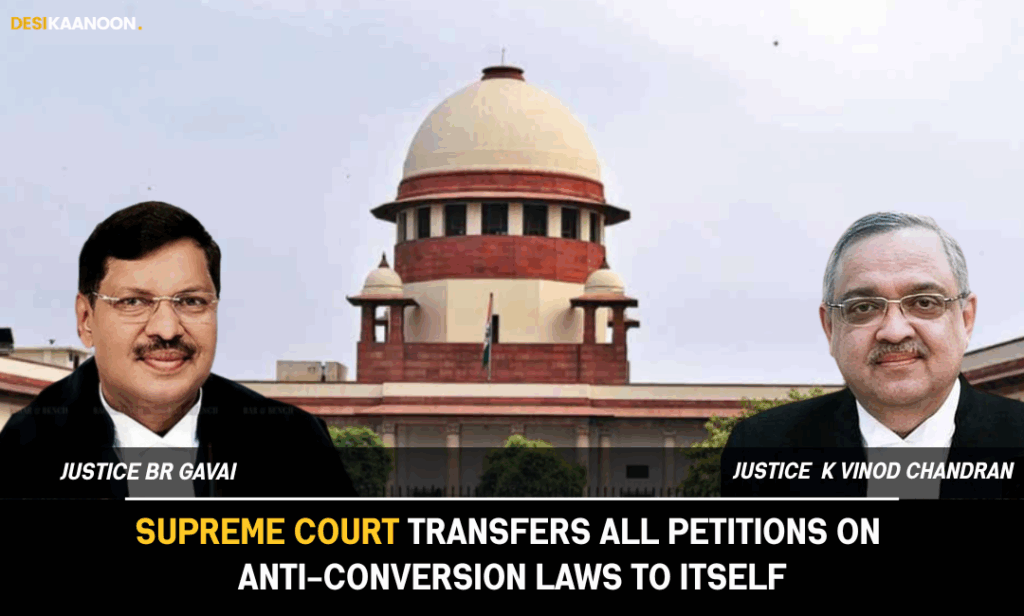Shreya Gupta
On 16th September, 2025, the Supreme Court transferred to itself petitions pending before various High Courts that challenge the validity of State laws on religious conversion.
A Division Bench of Chief Justice of India B.R. Gavai and Justice K. Vinod Chandran noted that the Court was already seized of similar petitions against laws in Uttar Pradesh, Himachal Pradesh, Madhya Pradesh and Uttarakhand, among other States.
The Court was informed that further petitions were pending in different High Courts. Senior Advocate Indira Jaising submitted that all such matters should be transferred so that there can be a consolidated challenge to these laws. Representing Madhya Pradesh, Additional Solicitor General K.M. Natraj stated that the State had no objection to the transfer.
CJI Gavai allowed the amendment application and ordered the transfer of these petitions to the Supreme Court. He further directed that the Court would consider applications seeking a stay on the operation of such laws after six weeks. “List after 6 weeks for the consideration of the applications seeking stay,” the Bench stated.
The petition was filed by an NGO called Citizens for Peace and Justice. It challenged religious conversion laws enacted by various States. In 2021, the Court had also allowed the Jamiat Ulama-i-Hind to intervene. The group alleged that many Muslims were being harassed across the country through the use of such anti-conversion laws.
During the hearing, Senior Advocate C.U. Singh raised concerns about the harsh consequences under the Uttar Pradesh law. He described it as “basically an anti-conversion law titled Freedom of Religion Act.” He pointed out that the law imposed a minimum sentence of 20 years. It also introduced twin conditions of bail, similar to the PMLA, along with a reverse burden of proof. According to him, these provisions made bail practically impossible for persons in interfaith marriages.
He further noted that several States were enacting similar laws. Rajasthan had enacted one just a few weeks ago. Singh added that under such laws, “any person can make complaint.” He cautioned that mobs were “picking them up during festivals.”
Advocate Vrinda Grover added that both the Uttar Pradesh law and Haryana conversion rules had been challenged. She also stated that they had sought a stay in another application. In response, CJI Gavai asked the States to file their replies.
Advocate Ashwini Upadhyay said he had filed an application seeking directions to ban deceitful and wrongful religious conversions, to which the CJI asked “Who will find out if it’s deceitful or not?”, and Senior Advocate Singh observed that while the present proceedings challenge the vires of the laws, Mr. Upadhyay’s plea effectively sought to enact a law; the CJI then stated, don’t write as it is, narrate
Case Title: Citizens for Justice and Peace v. State of Uttar Pradesh and ors and connected matters
Bench: Chief Justice of India B.R. Gavai and Justice K. Vinod Chandran
Instagram: Click here
LinkedIn: Click here

